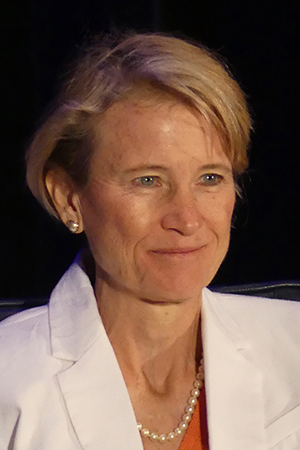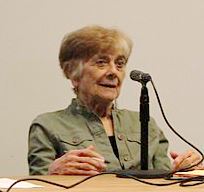Musicology is the scholarly study of music. Musicology research combines and intersects with many fields, including psychology, sociology, acoustics, neurology, natural sciences, formal sciences and computer science.
Philosophy of sex is an aspect of applied philosophy involved with the study of sex and love. It includes both ethics of phenomena such as prostitution, rape, sexual harassment, sexual identity, the age of consent, homosexuality, and conceptual analysis of more universal questions such as "what is sex?" It also includes matters of sexuality and sexual identity and the ontological status of gender. Leading contemporary philosophers of sex include Alan Soble, Judith Butler, and Raja Halwani.
Amitai Etzioni was an Israeli-American sociologist, best known for his work on socioeconomics and communitarianism. He founded the Communitarian Network, a non-profit, non-partisan organization dedicated to supporting the moral, social, and political foundations of society. He established the network to disseminate the movement's ideas. His writings argue for a carefully crafted balance between individual rights and social responsibilities, and between autonomy and order, in social structure. In 2001, he was named among the top 100 American intellectuals, as measured by academic citations, in Richard Posner's book, Public Intellectuals: A Study of Decline.

Public sociology is a subfield of the wider sociological discipline that emphasizes expanding the disciplinary boundaries of sociology in order to engage with non-academic audiences. It is perhaps best understood as a style of sociology rather than a particular method, theory, or set of political values. Since the twenty-first century, the term has been widely associated with University of California, Berkeley sociologist Michael Burawoy, who delivered an impassioned call for a disciplinary embrace of public sociology in his 2004 American Sociological Association (ASA) presidential address. In his address, Burawoy contrasts public sociology with what he terms "professional sociology", a form of sociology that is concerned primarily with addressing other academic sociologists.

Robert Neelly Bellah was an American sociologist and the Elliott Professor of Sociology at the University of California, Berkeley. He was internationally known for his work related to the sociology of religion.
Margaret Gilbert is a British philosopher who contributed to the foundations of the analytic philosophy of social phenomena. She also made substantial contributions to the fields of political philosophy, the philosophy of law, and ethics. She is a Distinguished Professor and the Abraham I. Melden Chair in Moral Philosophy at the University of California, Irvine.
Founded in Madrid in 2001, Sociologists Without Borders/Sociólogos Sin Fronteras (SSF) is a Non-Governmental Organization that advances a cosmopolitan sociology and its activities are considered to be public sociology. The organization has active chapters in Brazil, Chile, Italy, Spain the U.S., Canada, and Iran. The Spanish and U.S. chapters each have international members. Each of the chapters has regular meetings and organizes sessions at national sociological conferences, and there is an affiliated online, peer-reviewed journal.

Tara A. Smith is an American philosopher. She is a professor of philosophy, the BB&T Chair for the Study of Objectivism, and the Anthem Foundation Fellow for the Study of Objectivism at the University of Texas at Austin.
Jeffrey Roger Goodwin is a professor of sociology at New York University. He has served as chair of several sections of the American Sociological Association (ASA) and was coeditor of the ASA journal Contexts from 2004 to 2007.

Frances Fox Piven is an American professor of political science and sociology at the Graduate Center of the City University of New York, where she has taught since 1982.
George E. McCarthy is a professor of sociology at Kenyon College in Gambier, Ohio, USA.

Joe Richard Feagin is an American sociologist and social theorist who has conducted extensive research on racial and gender issues in the United States. He is currently the Ella C. McFadden Distinguished Professor at Texas A&M University.
Troy Smith Duster is an American sociologist with research interests in the sociology of science, public policy, race and ethnicity and deviance. He is a Chancellor’s Professor of Sociology at University of California, Berkeley, and professor of sociology and director of the Institute for the History of the Production of Knowledge at New York University. Duster is on the faculty advisor boards of the Berkeley Center for Social Medicine and the Berkeley Center for Right-Wing Studies.
David Alan Nibert is an American sociologist, author, activist and professor of sociology at Wittenberg University. He is the co-organizer of the Section on Animals and Society of the American Sociological Association. In 2005, he received their Award for Distinguished Scholarship.
Carlos Alberto Torres Novoa is a distinguished professor.
Ali A. Abdi is a Somali-Canadian sociologist and educationist. Currently, he is a professor of social development education in the Department of Educational Studies at the University of British Columbia in Vancouver, Canada, where he previously served as head of department. Before that, he was a professor of International Education and International Development at the University of Alberta in Edmonton, Alberta, Canada, where he also served as the founding co-director of the Centre for Global Citizenship Education and Research (CGCER). He is past president of the Comparative and International Education Society of Canada (CIESC). In addition, he is the founding editor/co-editor of the peer-reviewed online publications Journal of Contemporary Issues in Education and Cultural and Pedagogical Inquiry.
Rhoda E. Howard-Hassmann is a Canadian social scientist who specializes in international human rights.
Paula S. England, is an American sociologist and Dean of Social Science at New York University Abu Dhabi. Her research has focused on gender inequality in the labor market, the family, and sexuality. She has also studied class differences in contraception and nonmarital births.
Rebecca Suzanne Whisnant is professor and chair of the philosophy department at the University of Dayton.

Body theory is a sociological theory that analyses the human body as an ordered or "lived-in" entity, subject to the cultural and conceptual forces of a society. It is also described as a dynamic field that involves various conceptualizations and re-significations of the body as well as its formation or transformation that affect how bodies are constructed, perceived, evaluated, and experienced.






